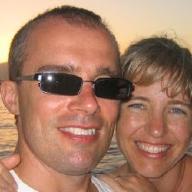Is Superintellect Implied By Physics?
This fine-tuning forced Hoyle to conclude a superintellect has monkeyed with physics, as well as with chemistry and biology. Another scientist, Paul Davies, who once promoted atheism, wrote:
[There] is for me powerful evidence that there is something going on behind it all….It seems as though somebody has fine-tuned nature's numbers to make the Universe….The impression of design is overwhelming.
Astronomer George Greenstern wrote in his book, The Symboiotic Universe:
As we survey all the evidence, the thought insistently arises that some supernatural agency or, rather, Agency must be involved. Is it possible that suddenly, without intending to, we have stumbled upon scientific proof of the existence of a Supreme Being? Was it God who stepped in and so providentially crafted the cosmos for our benefit?
The theoretical physicist, Tony Rothman, concluded a popular level essay as follows:
The modern cosmologist who gazes at the same sky through the eyes of Einstein and sees the hand of God not in angels but in the constants of nature. . . .When confronted with the order and beauty of the universe and the strange coincidences of nature, it's very tempting to take the leap of faith from science into religion. I am sure many physicists want to. I only wish they would admit it.
In an article on the anthropic principle, cosmologist Bernard Carr wrote:
One would have to conclude either that the features of the universe invoked in support of the Anthropic Principle are only coincidences or that the universe was indeed tailor made for life. I will leave it to the theologians to ascertain the identity of the tailor!
Physicist Freeman Dyson, also dealing with the anthropic principle, concluded:
The problem here is to try to formulate some statement of the ultimate purpose of the universe. In other words, the problem is to read the mind of God.
MIT physicist and former president of the Association of Women in Science, Vera Kistiahowsky, commented: "The exquisite order displayed by our scientific understanding of the physical world calls for the divine." Arno Penzias, who shared the Nobel prize for physics said:
Astronomy leads us to a unique event, a universe which was created out of nothing, one with the very delicate balance needed to provide exactly the conditions required to permit life, and one which has an underlying (one might say "supernatural") plan.
Cosmologist Edward Harrison evaluates the end conclusion of cosmology:
Here is the cosmological proof of the existence of God—the design argument of Paley—updated and refurbished. The fine-tuning of the universe provides prima facie evidence of deistic design. Take your choice: blind chance that requires multitudes of universes or design that requires only one….Many scientists, when they admit their views, incline toward the teleological or design argument.
The winner of the Crafoord prize in astronomy, Allan Sandage, relates his recognition of God:
I find it quite improbable that such order came out of chaos. There has to be some organizing principle. God to me is a mystery but is the explanation for the miracle of existence, why there is something instead of nothing.
The agnostic astrophysicist, Robert Jastrow, narrates the ironic twist of his colleagues' research of the universe:
For the scientist who has lived by his faith in the power of reason, the story ends like a bad dream. He has scaled the mountains of ignorance; he is about to conquer the highest peak; as he pulls himself over the final rock, he is greeted by a band of theologians who have been sitting there for centuries.
